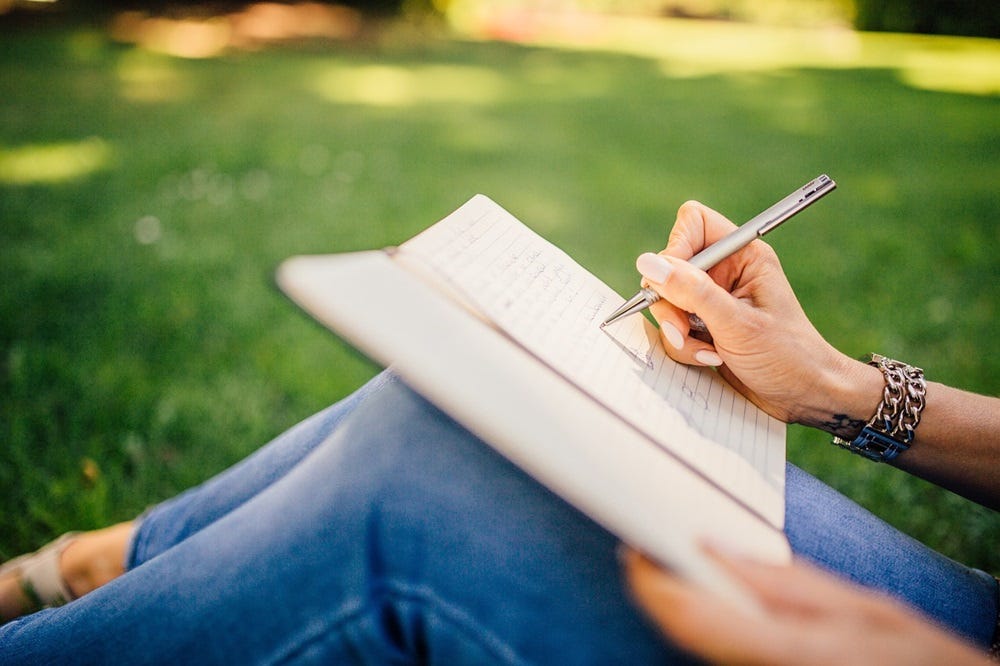This is our Primal expression
Here's an old piece of writing that somehow feels like a riposte to today's obsession with generative AI 'creativity'
ALL humans beings are storytellers, cave painters, poets and musicians. We are creatures of creation; it’s central to our nature to express ourselves.
This has been true ever since the first spark of self-awareness compelled us to ponder the dark depths between the stars, to search for meaning in our relations with those around us, and with the world in which we live.
Creativity is the central strand that binds our diverse cultures together. It strikes out from one generation to the next to transmit those cultures from the dawn of time to the ever-distant tomorrow. This urge to create ramifies into everything we do, even into the darker aspects of our collective psyche – the capacity to destroy.
Art in its many forms was mankind’s first expression of dissent; a subversion of the dominion of Nature. It stood for our own battle to escape the incarceration within the savage Eden that is the natural world.
Countless generations later, artistic expression in all its forms is still a basic act of defiance and of dissent. This time nature is not the object of our rebellion, but the human society that surrounds us and stifles us in everything we do.
From the day we are born, we are subliminally informed that we are fit only to labour or to perform some functional task for the market and its support systems. That and to dutifully consume material products.
Modern society catalogues humanity. It compartmentalises the human soul, splits it into components and neatly files them away. Here is our box, and there we must remain.
Capitalism needs throwaway components. We are expected to be near automatons performing repetitive tasks, regulated by the manager’s clock and to live out our lives in the service of the market. This is called freedom.
In return, we get a little food, a roof over our heads, and a little pocket money to spend on consumer things like clothes and cars and holidays in the sun.
Capitalism does not need a wealth of thinkers, or visionaries or people with untrammelled imagination. Such people are in general a hindrance to the smooth flow of profit. Instead, the vast majority is expected to channel imagination into other avenues.
So the accountant finds clever ways to boost a client’s profit. The scientist working for an armaments company finds ever better ways to kill and maim. The labourer is simply crushed.
Or so it would seem.
Dig a little deeper and we find the burning fires of ancient creativity. Sometimes it screams at us from the walls of our prison cities in the most colourful displays of graffiti art.
At other times we must peer a little harder into the crevasses and shadows of our narrow world, think a little laterally to realise that despite its circumstances, humanity still fights to express itself, any way it can, by whatever limited means.
“I woz ‘ere” the scrawl tells us from a wall. This and many like it, sometimes accompanied by crude drawings in a primeval mimicry of the ‘higher’ graffiti art or indeed of ancient cave drawings, scream their creator’s desire to be recognised in their existence.
As for the story telling tradition, that is alive and well in the most unlikely of places. Look to the pub, or similar gatherings where people flock to converse. In the simple telling of anecdotes and gossips, stories of their lives are performed for the small audience of family and friend.
Here are the rawest forms of self-expression, the human mind declaring its existence in the face of perpetual indifference. Perhaps it is also the most pitiable, but in a sense it shows that some spark of defiance still sputters in the human soul.
Some may find it difficult to perceive such notions in pointless scrawling, or in the casual gossip and boasting of a tap room milieu. Yet it represents in its most basic form that which lies in all human souls – creativity and expression.
In recent years, there has been an explosion in popularity for poetry. The muse sings to the masses and takes form in their own words and creative explorations. Yet so many of the cultured elite talk of taking the poetry to the masses, unaware that poetry exists there already. Like missionaries, they take the light of wisdom to the ‘heathen savages’, only to find the torches burning bright where their arrogance said were only shadows.
Light already blazes, burning with the fuel of poetry and prose and music and art. Words and deeds define humanity as something that is not content to be bound by the fetters of capitalism, anymore than ancient humans were content to be bound by the fetters of nature. Like them, we lash out, consciously and unconsciously we tell the world that we are more than our allotted function. We break the bounds, shatter the blinkers of censorship and of sense and sensibility.
We are dissidents and subversives by the very act of writing. By putting our thoughts and deeds into words and image and song, we lash out against the bonds that attempt to strangle our minds. We are saying that we are more than just a function, more than a dutiful consumer.
We aim a blow at the ideology that says we are less than human. The ideology of cultural elitism, that trains the masses to hold themselves in contempt, to turn away from creative endeavours until an essential part of their mind is withered and atrophied.
We are the torchbearers, carrying what was bequeathed to us by our storytelling, cave-painting forebears, in the days when humanity still knew how to love and live and dare to dream. Art was and ever remains the primal scream of human awakening.
MC
Copyright © October 1999


